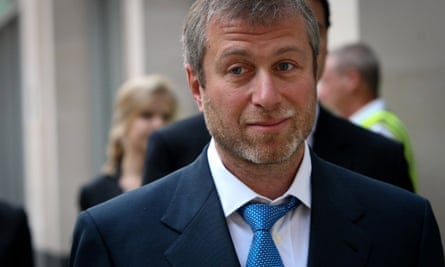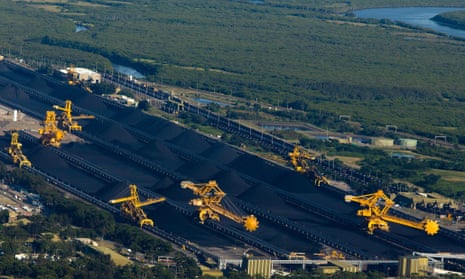The Chelsea football club owner Roman Abramovich is among a super-rich list of 12 investors whose combined coal holdings are equivalent to the entire annual emissions of China, the world’s biggest polluter, a Guardian analysis has found.
Top of the “dirty dozen” list is Vinod Shantilal Adani, who has a $900m (£581m) stake in Indian coal giant Adani Enterprises. His share of the company’s coal reserves will produce 2GT of carbon dioxide when sold and burned, the same as India’s 1.2 billion people produce in a year. Adani’s company is also behind the vast Galilee basin coal project in Australia.
Second on the list is Abramovich. The Russian businessman’s $766m stake in Evraz, the steel and mining company, gives him ownership of about a quarter of Russia’s largest coal mine, the Raspadskaya coal complex in Siberia.
The mine’s coal reserves represent 1.5GT of carbon emissions, not far off the annual output of Russia itself. Two other Evraz owners, Alexander Abramov and Alexander Frolov also feature in the dirty dozen of coal owners.
Fourth place on the list of coal kings is Low Tuck Kwong, who owns 51% of Bayan Resources. That stake in eight Indonesian coal mines represents 1GT of future carbon dioxide emissions, more than Germany’s annual output. Bayan Resources is continuing to explore for more coal reserves.
Low is followed by Suleiman Kerimov whose 40% stake in Russian gold mining company Polyus Gold make him the major owner of the company’s coal reserves, estimated at 2.3GT by analysts at Fossil Free Indexes. Kerimov’s stake gives him 923m tonnes of future carbon dioxide emissions. Gavril Yushvaev and Oleg Mkrtchyan each hold about 19% of Polyus Gold, earning them places nine and 10 on the dirty dozen list.
Glencore Xstrata, the global mining giant, provides two entries. Chief executive Ivan Glasenberg has a $4.6bn stake in Glencore, but as coal mining is a relatively small part the company’s business, his personal coal-related carbon footprint is less than that of Adani or Abramovich, equivalent to 900m tonnes of future carbon emissions.

Glasenberg recently dismissed concerns that any of Glencore’s huge reserves of coal would be left worthless by international climate change action to cut greenhouse gases, saying he did not believe governments would act in the face of growing demand for cheap energy. Glasenberg’s Glencore colleagues Daniel Badenes and Aristotelis Mistakidis take 11th and 12th place on the dirty dozen list, with stakes representing 340m tonnes of CO2 each, about the same as France or South Africa emits in a year.
Vadim Danilov, in 10th, completes the dirty dozen list, thanks to a relatively modest $25m stake in Kuzbass Fuel, also called KTK, which owns mines in Siberia and claims to produce over half the coal in Russia. But his 15% stake gives him ownership of 391m tonnes of future CO2 emissions, the same as Australia or Italy emit in a year.
The Guardian’s analysis used data from Reuters retrieved on 25 April 2015 to determine the ownership of the top 50 publicly traded coal companies, as ranked by Fossil Free Indexes on the basis of the coal reserves held by each company.

Comments (…)
Sign in or create your Guardian account to join the discussion